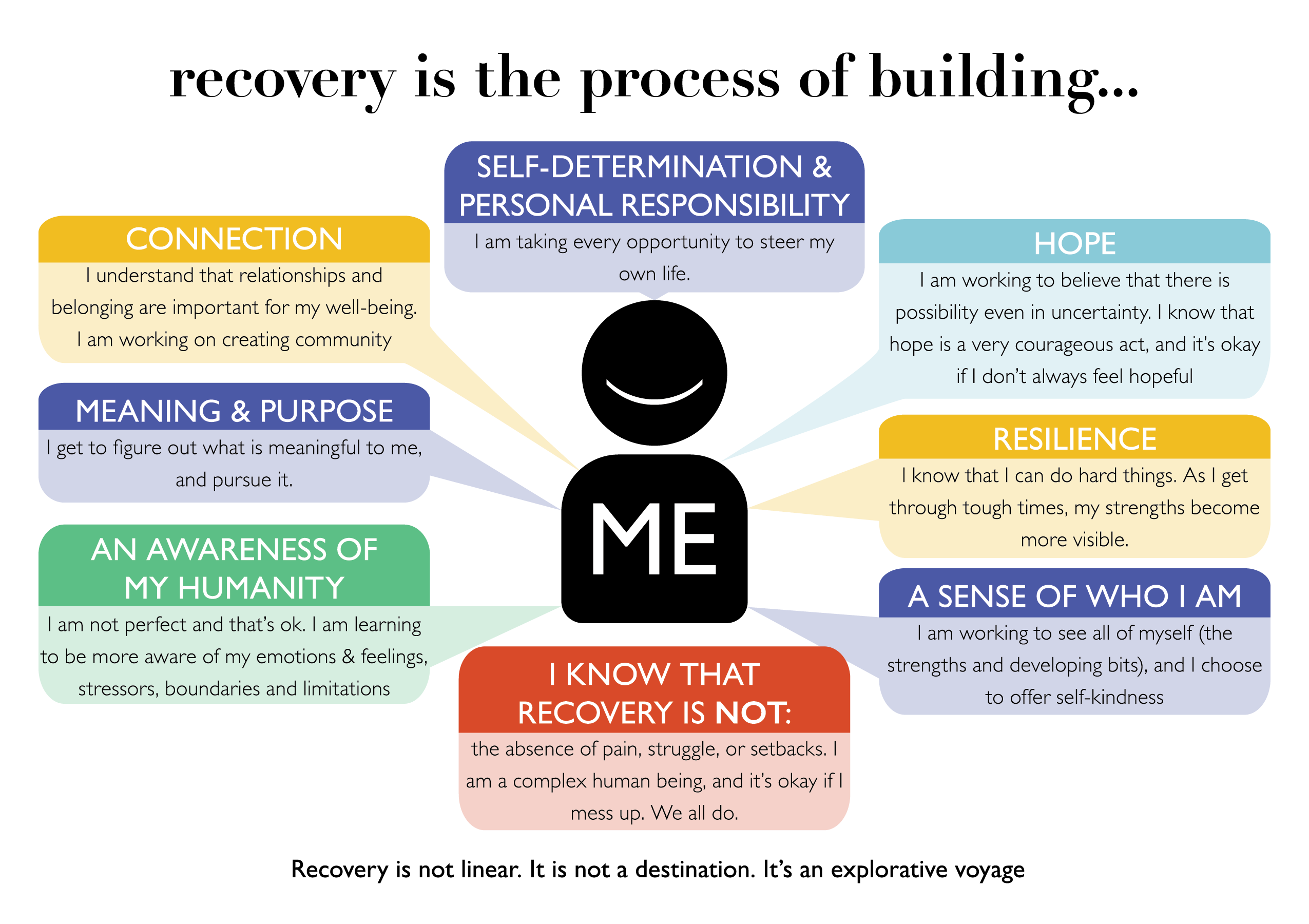Resilience & Recovery
Like we covered earlier, we can choose to see setbacks as learning opportunities, rather than something that will kick us back to square one. Taking the shame and blame out of a setback supports us to hold onto hope and see the experience as a teacher. Part of healing is allowing ourselves to feel all our feelings, including pain, and remembering that bumps in the road are a part of the process. When we believe this, we can get back up more easily.
Resilience is the ability to bounce back after adversity. Resilience building supports us to manage adversity. Being resilient doesn’t mean that a person won’t experience crisis or adversity. In fact, going through those things can strengthen our resilience. Resiliency is not extraordinary; anyone can strengthen their resilience. It’s like strengthening a muscle.
As we cultivate resilience while offering compassion to ourselves, our capacity for taking personal responsibility expands. We begin to understand that imperfection is a non-negotiable piece of the human condition, and that guarantees that we will make mistakes in life. We will have moments when we either intentionally or unintentionally hurt people around us. However, when we can learn to let go of our shame, offer kindness to ourselves then we can own our mistakes. We can feel equipped to actively repair our damaged relationships.
Human beings are resilient. Believing that fact makes us even more resilient.
This is important to remember for ourselves, and we also might be in a position of sharing these ideas and practices with the people we support.
The word recovery is used frequently in mental health and addiction spheres. We see recovery as a transformative, self-directed exploration. It’s the equivalent to a mysterious healing process where someone grows new strengths and abilities through their struggle and subsequent healing process. Recovery is an opportunity for discovery – to see that which may not have been visible before. Recovery includes the discovery, resurfacing and development of hope, self-determination, resilience, purpose, presence and belonging, even in the midst of struggle. It’s the revelation of a new sense of being in the world.

Image Description
Recovery is the process of building:
- Self-determination & personal responsibility: I am taking every opportunity to steer my own life.
- Connection: I understand that relationships and belonging are important for my well-being. I am working on creating community.
- Hope: I am working to believe that there is possibility even in uncertainty. I know that hope is a very courageous act, and it’s okay if I don’t always feel hopeful
- Meaning & purpose: I get get to figure out what is meaningful to me, and pursue it.
- Resilience: I know that I can do hard things. As I get through tough times, my strengths become more visible
- An awareness of my humanity: I am not perfect and that’s ok. I am learning to be more aware of my emotions & feelings, stressors, boundaries and limitations.
- I know that recovery is NOT: the absence of pain, struggle or setbacks. I am a complex human being, and it’s okay if I mess up. We all do.
Recovery is not linear. It is not a destination. It’s an explorative voyage.
Media Attribution
- Recovery process by Jeseye Tanner is licensed under a CC BY 4.0 licence.

